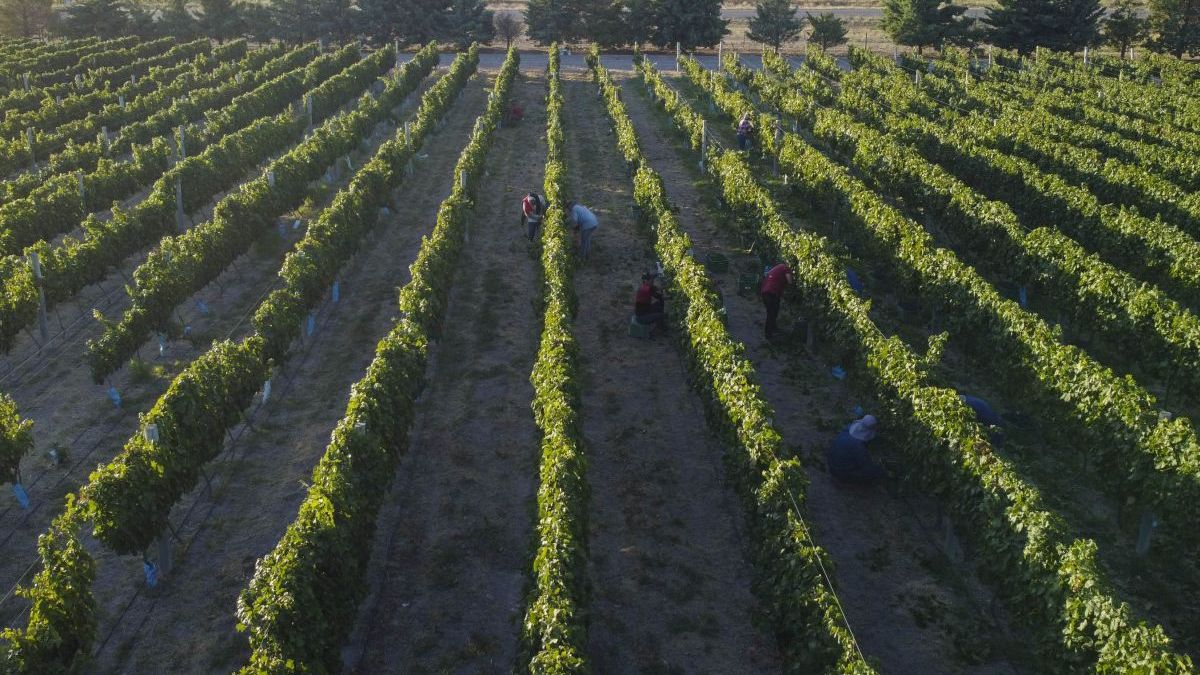Located southwest of The Pampathe region of Stone House stands as a productive oasiswhere the joint work of the public and private sectors allows the development of important agricultural projects, especially linked to nuts.
In recent months, the Pampas management announced the modernization of its irrigation system through a public-private initiative that has already managed to attract nearly $10,000 million.
Since the governor’s administration Sergio Ziliotto They highlighted that an investment in irrigation by the Pampas provincial government “doubled the number of productive hectares in Casa de Piedra and plans to reach a total of 1,200 in a few years.”
La Pampa: public – private investment in La Pampa
In the province they pointed out that “in the face of the withdrawal of the nation, La Pampa faces the process of desertification, a consequence of Mendoza’s management of the rivers, with its own initiatives and investments.” “Thanks to this effort, Casa de Piedra goes from being a desert to a tourist and productive town,” explains the head of the Provincial Foreign Trade and Investment Agency, Sebastián Lastiri.
Currently, in the region there is a megaproject of the company Pampapist SRL with 200 hectares planted with pistachio, which they will seek to bring to 800 in the next two years, establishing the area as an important productive hub.
Field irrigation La Pampa.jpg
Casa de Piedra is located 378 kilometers southwest of its provincial capital, the city of Santa Rosa, on the northern bank of the Colorado River. The climatic conditions provide a favorable framework for the proliferation of nuts such as pistachios, almonds and walnuts.
To these benefits, the pumping system and a collection tank were added, that allow irrigating an area of 413 hectares that were practically unproductive on dry land. These lands have already been put out to tender and businesses linked to vines and dried fruit are being established.
irrigation system
In the first months of 2023, the governor of La Pampa, Sergio Ziliotto ordered the Ministries of Production, Treasury and Finance, the Provincial Entity of the Colorado River (EPRC), the National University of La Pampa (UNLPam) and the Foreign Trade and Investment Agency of the province to “switch to gasoline” and “turn on the “turbo”.
Regarding this aspect, Lastiri said: “Public investment first provided a lot of key information to determine what productive activities were possible and Then it developed very efficient management of water resources. After that, the governor commissioned us to develop a package of instruments that would facilitate the arrival of investors. “In less than a year we managed to have establishments in the production phase,” Lastiri adds.
“The package includes housing for the people who are going to work on those farms to settle, credits at a subsidized rate and tax incentives. Without this provincial effort, without public-private coordination, without the technical work, none of this would have been possible or it would have been a very high-risk investment for the private sector,” the official concluded.
In addition, the Casa de Piedra Boutique Winery is in the final construction process, a commitment that Governor Ziliotto made to the wine producers of La Pampa.
The winery will allow wine to be made in the province, avoiding transfers of raw materials, generating direct and indirect work, It will consolidate the designation of origin “Wines of Patagonia” and will be another element to promote tourism in the region.
Source: Ambito
I am an author and journalist who has worked in the entertainment industry for over a decade. I currently work as a news editor at a major news website, and my focus is on covering the latest trends in entertainment. I also write occasional pieces for other outlets, and have authored two books about the entertainment industry.




